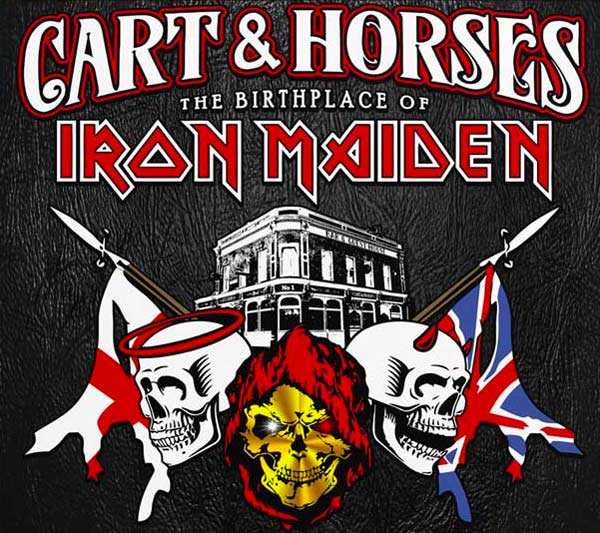Few bands have followed their own path as defiantly, organically and as originally as Opeth. Track back through their extensive discography from the 1995 debut Orchid through to 2019’s In Cauda Venenum, and you will find an extensive journey has been covered. Opeth, led by the inimitable Mikael Åkerfeldt, have traversed genres, moving from the crushingly heavy early Death Metal vibrancy to the Progressive style that sees them lose and gain legions of fans and makes them revered in Heavy Metal circles today.
Opeth – The Last Will And Testament (Reigning Phoenix Music)
Release Date: 22 November 2024
Words: Paul Hutchings
It has been a true evolution, each album building on the foundations of its predecessor to create a better and more expansive release. Few could have anticipated the band’s run of Blackwater Park, Damnation/Deliverance and Ghost Reveries, or the left turn that 2011’s Heritage provided, running through to Pale Communion and Sorceress before their double release of In Cauda Venenum five years ago.

The Last Will And Testament is the 14th studio album by the Swedes. It is their longest gap between records and sees the recording debut of Finnish drummer Waltteri Väyrynen. The former Paradise Lost sticksman is certainly no slouch, bringing a fresh element to the band.
Väyrynen has impressed the boss for sure. “I knew Walt was a great drummer,” says Åkerfeldt, “but I didn’t know how good he was. We’re not crappy musicians in this band. We can play. But we sat there at Rockfield Studios, and he just was doing these insane, technical songs in one take. We were almost recording it in real time! [Laughs] He’s amazing.”
Väyrynen’s performance is indeed superb on The Last Will And Testament. Check his drumming on the intro to paragraph §VI where he is in tandem with Martin Mendez’s pulsing bass and Joakim Svalberg’s powerful Hammond riffs. But Väyrynen is not alone, for each member of the band puts in a stunning performance.
Add in spoken word and some glorious flute from Jethro Tull’s Ian Anderson and words from Europe’s Joey Tempest, and you have a mix whose intricacy leaves you gasping. There are passages here that delight, amaze, grab you by the lapels, and metaphorically slap you around the head.
The Last Will And Testament is the second concept album by Opeth after 1999’s Still Life. The story, as I am sure you will have searched out by now, centres on recounting the reading of one recently deceased man’s will to an audience of his surviving family members.
Set in the post-World War I era, it begins with the reading of the father’s will in his mansion and expands to reveal the patriarch’s confessions and the presence of a mysterious polio-ridden girl who appears to be the heir to the man’s fortune, despite the suspicions of his twin children.
Through several twists, the story unfolds in dramatic style. Consisting of eight tracks, the first seven are titled as paragraphs as written in a will, (§I, §II, §III, §IV, §V, §VI, §VII.), with only the final track, A Story Never Told, named.
Since the release of the first track, §I, much has been written about the return of Åkerfeldt’s death growls. For those who hanker after the style last heard in 2008’s Watershed, there will be much joy, for his vocals are a gorgeous mix throughout The Last Will And Testament. His cleans are pure, whilst the growls are deeper and more focused than last heard.
Musically, The Last Will And Testament is, in parts, some of the heaviest work that Opeth has delivered for well over a decade. And yet it is also some of the most progressive work that has ever been written. At just over 50-minutes in length, it’s also the shortest Opeth album since Damnation.
The complexity of some passages is mind-blowing. Joakim Svalberg’s rich Hammond organ and swirling keys dip and dive, flitting across genres incorporating jazz passages. Often engaging in combat with the guitars of Åkerfeldt and Fredrik Åkesson, this is reminiscent of those Blackmore and Lord showdowns of the ’70s.
Yet despite the gloriously retro feel of some of the music, this is timeless in composition and delivery.
As the album weaves its way to the grand finale, there is a sense of build-up, the approaching climax brewing like an incoming storm.
It duly arrives in paragraph §VII, which realises some of the most impressive musical movements and interplay of the whole album.
And with the final song, A Story Never Told, the concept is wrapped up in a beautifully melancholic fashion. Rich and melodic, it is a perfect conclusion to an album that will not be instantly accessible. A release that turns back time in many ways, The Last Will And Testament requires time to absorb and explore, to unpack and enjoy the twists and turns of a musical exploration in this sepia-tinged 1920s setting.
Progressive and masterful, Opeth continue to follow their own destiny.






